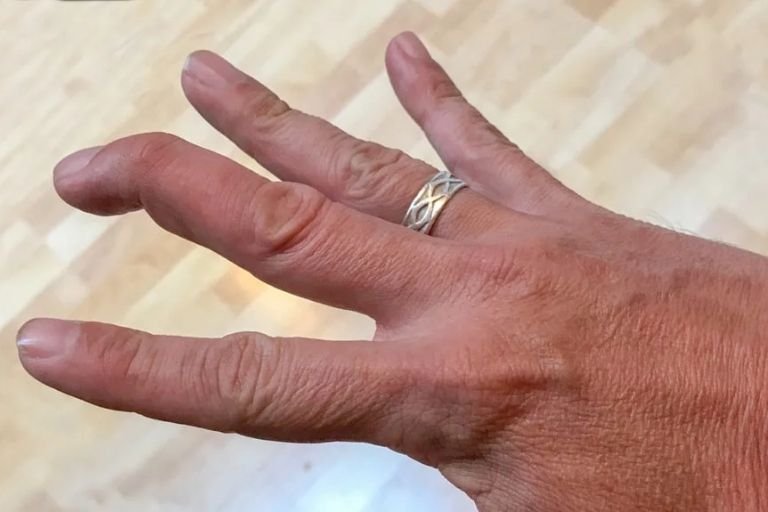- Fitwell Physiotherapy
Fibromyalgia

Fibromyalgia is a complex and often misunderstood condition characterized by chronic widespread musculoskeletal pain, fatigue, sleep disturbances, and mood issues. While its exact cause remains unknown, researchers believe it involves a combination of genetic, environmental, and psychological factors.
Please submit your details below.
Symptoms:
- Widespread Pain: The hallmark symptom is chronic, widespread pain affecting muscles, ligaments, and tendons throughout the body.
- Fatigue: Profound exhaustion, even after adequate rest, is common.
- Sleep Disturbances: Sleep problems such as insomnia, frequent awakenings, and non-restorative sleep are prevalent.
- Cognitive Difficulties: Often referred to as “fibro fog,” individuals may experience memory problems, difficulty concentrating, and impaired cognitive function.
- Mood Disorders: Depression, anxiety, and stress are often comorbid with fibromyalgia.
- Other Symptoms: Headaches, irritable bowel syndrome (IBS), temporomandibular joint disorders (TMJ), and heightened sensitivity to stimuli such as noise, light, and temperature changes may also occur.
Causes:
- Genetics: There appears to be a familial predisposition to fibromyalgia, suggesting a genetic component.
- Physical Trauma: Some cases develop following physical trauma, such as injuries from accidents or surgeries.
- Infections: Certain infections have been linked to the onset of fibromyalgia.
- Stress and Emotional Trauma: Chronic stress or traumatic events may trigger or exacerbate symptoms.
- Neurochemical Imbalance: Dysregulation of neurotransmitters such as serotonin and noradrenaline may contribute to the development of fibromyalgia.
When to See a Physiotherapist:
If you experience persistent, unexplained musculoskeletal pain accompanied by other symptoms like fatigue and sleep disturbances, it’s advisable to consult a healthcare professional. Physiotherapists can play a crucial role in managing fibromyalgia by designing personalized exercise programs, providing manual therapy, and offering strategies to improve sleep and manage pain.
Risks:
- Reduced Quality of Life: Fibromyalgia can significantly impair one’s ability to perform daily activities and negatively impact overall quality of life.
- Mental Health Concerns: Chronic pain and fatigue often lead to depression, anxiety, and other mood disorders.
- Social Isolation: Difficulty in participating in social activities due to pain and fatigue may result in social withdrawal and isolation.
How to Prevent:
Since the exact cause of fibromyalgia is unknown, prevention strategies primarily focus on managing risk factors and adopting a healthy lifestyle. This includes regular exercise, stress management techniques such as mindfulness and relaxation exercises, maintaining a balanced diet, and getting adequate sleep.
Treatments:
- Medications: Pain relievers, antidepressants, and anticonvulsants may be prescribed to alleviate pain and improve sleep.
- Physical Therapy: Exercise programs tailored to individual needs, along with techniques such as massage, stretching, and heat therapy, can help manage symptoms.
- Cognitive Behavioral Therapy (CBT): CBT can help individuals develop coping strategies, manage stress, and improve sleep patterns.
- Mind-Body Therapies: Techniques such as yoga, tai chi, and meditation may help reduce pain and improve overall well-being.
- Alternative Therapies: Acupuncture, biofeedback, and dietary supplements like magnesium and SAM-e are sometimes used to manage symptoms, although their efficacy varies.
While there’s currently no cure for fibromyalgia, a multidisciplinary approach combining medication, physical therapy, and lifestyle modifications can help individuals manage symptoms and improve their quality of life. It’s essential for individuals with fibromyalgia to work closely with their healthcare team to develop a comprehensive treatment plan tailored to their specific needs.
Frequently Asked Questions
Related Conditions
How Fitwell Physiotherapy Can Help?
Dr. Richa’s Fitwell physiotherapy has an extensive team of physiotherapists all within their own specialist areas of physiotherapy. Whatever your condition, we guarantee that we will have the best physiotherapist for you. We assess, diagnose, plan, cure and care for you.
Fitwell Physiotherapy Clinic, Pune provides you best physiotherapy treatment in Kharadi, pune. We also serve Chandan Nagar, Vadgaon Sheri, Keshav Nagar, Wagholi & nearby Areas in Pune. We are experts in treating Neck Pain, Hand Pain, Back Pain, Lower Back Pain, Knee Pain, Stiff Neck, Sciatica, Arthritis, Stroke Paralysis & Post Surgical Rehab.
We provide Specialized physiotherapy treatments in Sports Injuries, Pre and post Surgery, Neurologic, Pediatric, Chronic Pain/Fatigue, Rheumatology, Women’s Health, Men’s Health, Ergonomics, Vestibular, Amputees & all sort of Pain treatment and lifestyle conditions.

































































































